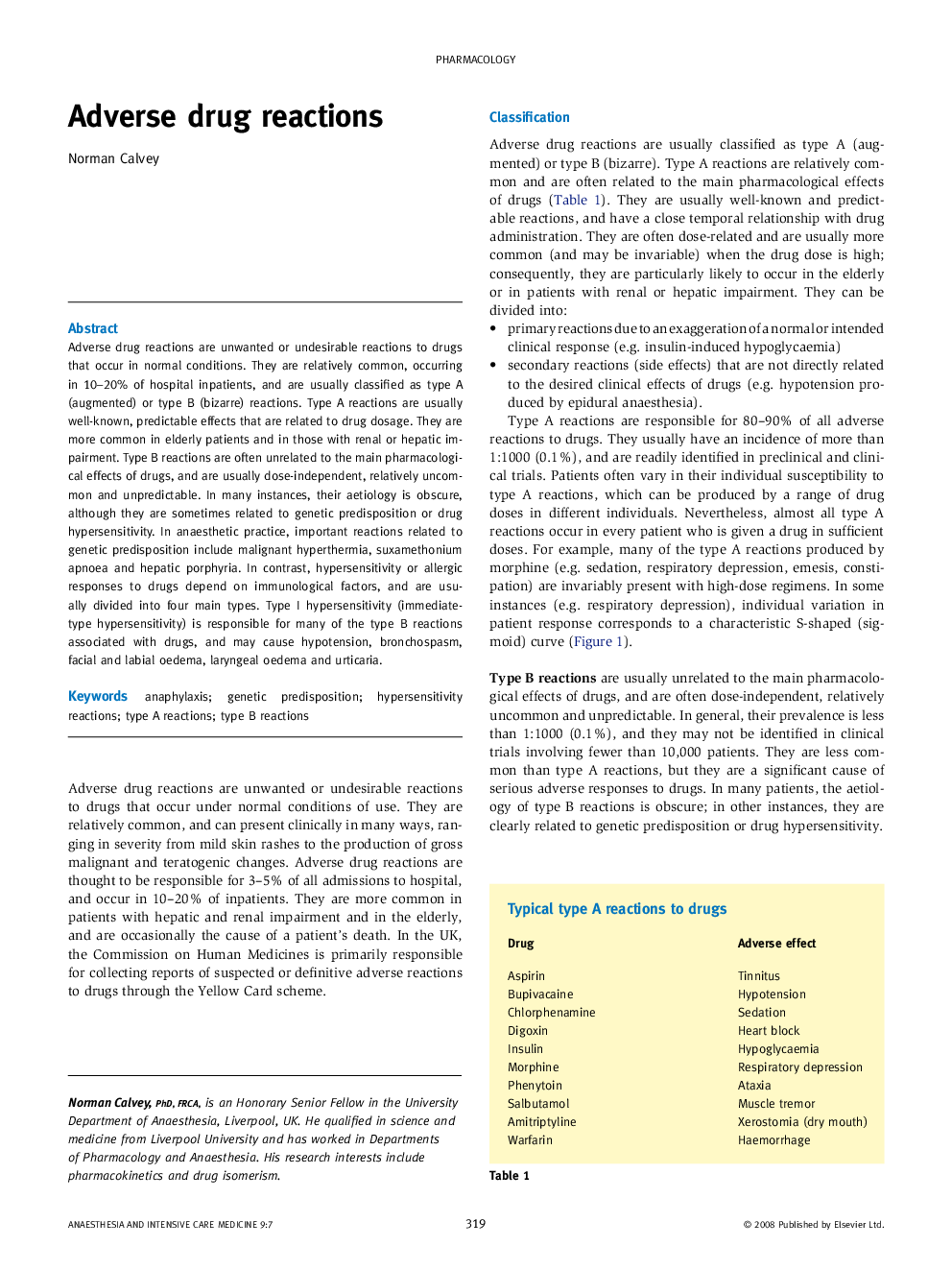| کد مقاله | کد نشریه | سال انتشار | مقاله انگلیسی | نسخه تمام متن |
|---|---|---|---|---|
| 2743567 | 1148683 | 2008 | 5 صفحه PDF | دانلود رایگان |

Adverse drug reactions are unwanted or undesirable reactions to drugs that occur in normal conditions. They are relatively common, occurring in 10–20% of hospital inpatients, and are usually classified as type A (augmented) or type B (bizarre) reactions. Type A reactions are usually well-known, predictable effects that are related to drug dosage. They are more common in elderly patients and in those with renal or hepatic impairment. Type B reactions are often unrelated to the main pharmacological effects of drugs, and are usually dose-independent, relatively uncommon and unpredictable. In many instances, their aetiology is obscure, although they are sometimes related to genetic predisposition or drug hypersensitivity. In anaesthetic practice, important reactions related to genetic predisposition include malignant hyperthermia, suxamethonium apnoea and hepatic porphyria. In contrast, hypersensitivity or allergic responses to drugs depend on immunological factors, and are usually divided into four main types. Type I hypersensitivity (immediate-type hypersensitivity) is responsible for many of the type B reactions associated with drugs, and may cause hypotension, bronchospasm, facial and labial oedema, laryngeal oedema and urticaria.
Journal: Anaesthesia & Intensive Care Medicine - Volume 9, Issue 7, July 2008, Pages 319–323